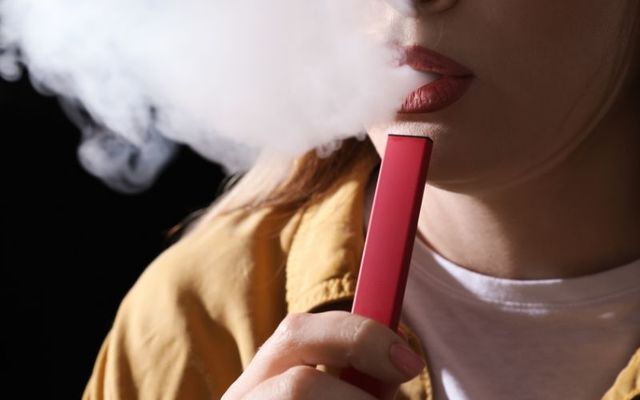Ireland's Public Health (Tobacco Products and Nicotine Inhaling Products) Bill has passed through all stages of the legislative process in the Dáil Eireann and will now move to the Seanad.
The Bill contains wide-ranging measures to tackle smoking and vaping among children and adults, Ireland's Department of Health said on November 8. These measures focus on preventing young people from beginning to smoke or vape to protect their health.
Along with prohibiting the sale of nicotine-inhaling products to under-18s, the Bill will prohibit the sale of tobacco products and nicotine-inhaling products at events for children, and also prohibit the advertising of nicotine-inhaling products around schools and on public transport.
It also seeks to prohibit the self-service sale of tobacco products and nicotine-inhaling products and to introduce a strict licensing system for the retail sale of tobacco products and nicotine-inhaling products.
The Bill further seeks additional enforcement powers to the Environmental Health Service for measures in the Bill and for all previous Tobacco Control Acts.
The Bill's passage through the Dáil Eireann on Wednesday was welcomed by Stephen Donnelly, Ireland's Minister for Health, and Hildegarde Naughton, Ireland's Minister for Public Health, Wellbeing and the National Drugs Strategy.
Both Donnelly and Naughton intend to see the law enacted and commenced as soon as possible.
Minister Donnelly said: “I am delighted that this Bill has passed all stages in the Dáil. The Bill will ensure that our children cannot legally buy nicotine inhaling products such as e-cigarettes and I look forward to introducing this measure as soon as possible.
"We are also introducing a licensing system for both tobacco products and nicotine-inhaling products in order to better reflect the potentially harmful nature of the products being sold. Under the new system, retailers will have to apply for and be granted an annual licence for the sale of these products.”
The Dáil has passed the legislation banning the sale of vapes to children.
We remain on track to get this through the Seanad in the coming weeks and ensure children can no longer be sold vaping products. https://t.co/5kRK4bgZ0r
— Stephen Donnelly (@DonnellyStephen) November 8, 2023
Minister Naughton said: “Ireland is recognised as a global leader in tobacco control. We are continuing to innovate with the measures in this Bill with a particular focus on children.
"We are banning the sale of tobacco and nicotine-inhaling products at events for children and further restricting the advertising of nicotine inhaling products in order to reduce the exposure of our children to these products in their daily lives.”
This evening the Dáil has passed a bill which will ban vaping products being sold to children. The legislation will now go to the Seanad ahead of enactment ? pic.twitter.com/sB4nysg7ZT
— Hildegarde Naughton (@1Hildegarde) November 8, 2023
Introducing the Bill in June, Minister Naughton said: "We have made good progress in reducing our smoking rates from the very high levels in the past but there is still much to do.
"The 2022 Healthy Ireland survey data tells us 18% of our adult population smoke, with 14% smoking daily and 4% smoking occasionally.
"Our latest Health Behaviour in School-Aged Children survey, from 2018, shows 5% of children aged between ten and 17 years smoke monthly or more frequently and 11% have smoked at least once.
"Usage of e-cigarettes among adults was 6% in 2022, according to the Healthy Ireland survey, with 3% daily use and 3% occasional use.
"Among children, the 2018 Health Behaviour in School-Aged Children survey showed 9% had used an e-cigarette within the last 30 days and 22% had tried one at some point."
What is vaping?
Ireland's Health Service Executive (HSE) says that electronic cigarettes (e-cigarettes) are battery-powered devices that heat nicotine mixed with flavorings and other chemicals to create an aerosol that the user inhales.
Using an e-cigarette is known as vaping.
Vaping use in young people under the age of 18 has increased in recent years in Ireland.
The HSE says children and young people are more at risk of developing an addiction to nicotine, as well the negative effects of nicotine use on the developing brain - for example, problems with attention, learning, mood, and impulse control.
The HSE says the best thing you can do for your health is not to smoke or vape and offers free support and advice on options that help with nicotine withdrawal.




Comments